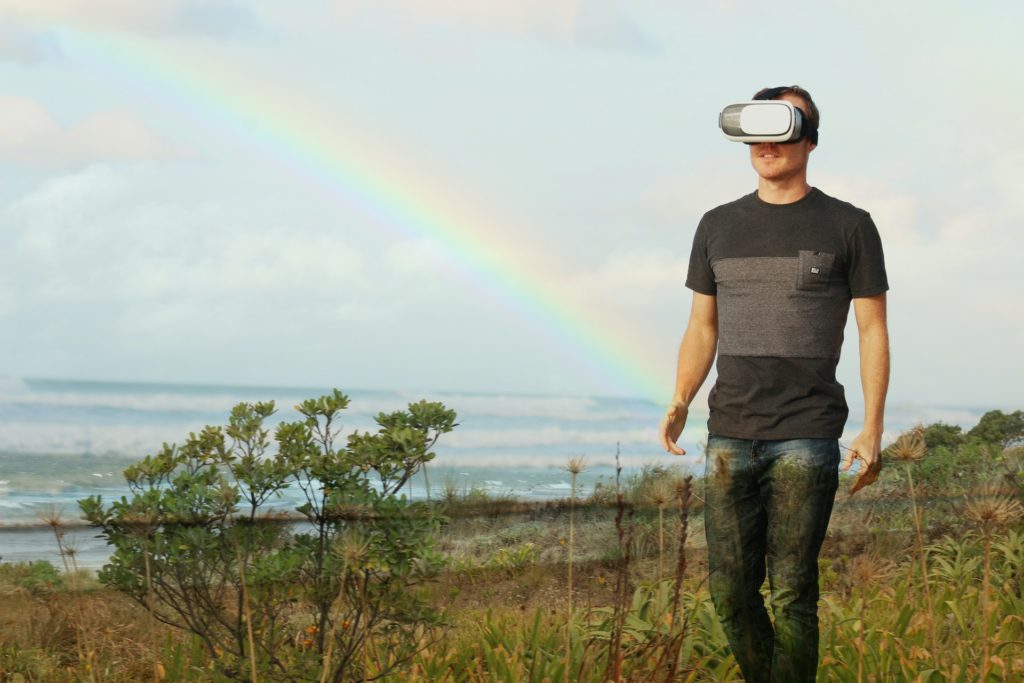NeuroVR – Virtual Reality Neurofeedback
In the scope of developing innovative solutions to improve well-being and stress management in the context of ageing, geroRESERACH has initiated the pilot project NeuroVR in cooperation with the Fachhochschule Kaiserslautern. It combines the use of neurofeedback training with modern VR technology in an innovative way.
- NeuroVR is an innovative solution for promoting self-regulation capacities in the context of stress by combining VR (virtual reality) and bio/neurofeedback technologies.
- NeuroVR bundles different competences into a complementary and individually applicable solution for health promotion as well as for targeted therapeutic indications.
- NeuroVR offers completely new possibilities to improve the mental well-being and mental health of older people in a tailor-made and unique way.
- NeuroVR will transform neurofeedback training into a multi-sensory recreational experience.
Therapeutic principle
During neurofeedback, brain activity is measured by means of electrodes attached to the surface of the head. This information is processed by computer software and fed back to the person in real time – typically via a video on a monitor. The feedback signal is linked to a reward principle.
The application of neurofeedback in virtual reality has the particularity that the person is immersed in a purpose-built relaxation world with the help of VR goggles, while the real environment (e.g. treatment room) is completely faded out.
Within a few seconds the feeling of being present in the virtual world sets in. By changing subtle parameters in the virtual environment (e.g. movement, colours, lighting conditions), which mirror changes in brain activity in real time, the brain learns « playfully » and unconsciously to change its neuronal patterns in a targeted way.
First steps
- In a first pilot phase, the focus will be on older people as a target group. In the geroRESEARCH LAB, technology optimising test trials will take place in cooperation with the FHS-Kaiserslautern.
- Implementation of practical (cross-age) workshops as part of the Semaine de la Santé Mentale (d’Ligue) at CIPA Howald and at the HESPER youth centre (in October 2022).
- A longitudinal pilot study on technical feasibility analysis in the context of treatment of stress-related disorders is planned in a stress outpatient clinic in Luxembourg.







